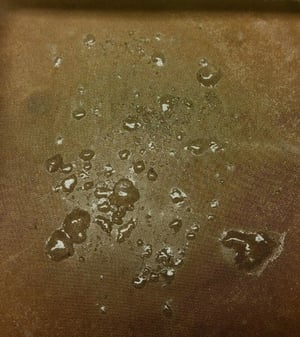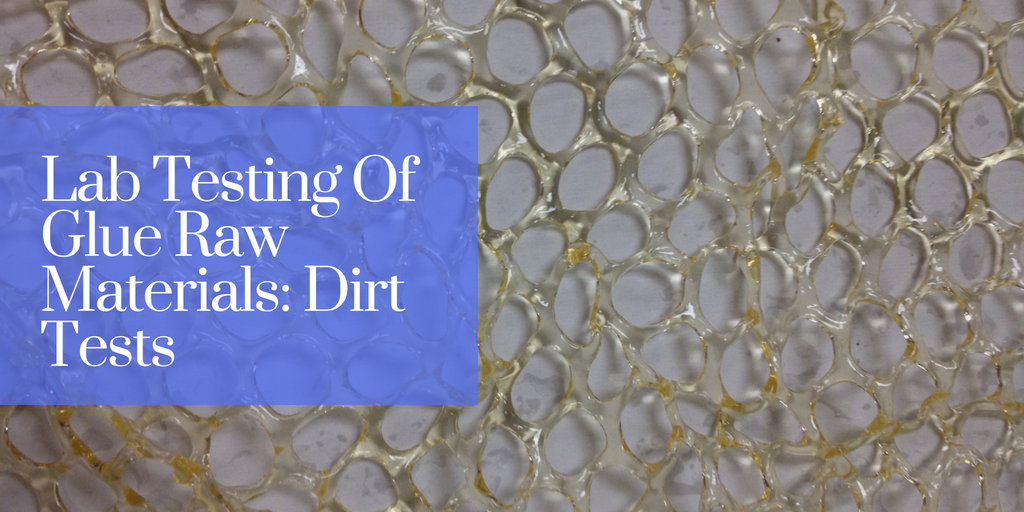Gelatin is the key raw material used in our protein cake glues (animal glue) and we receive this raw material from several different suppliers. To ensure all gelatin meets our quality control standards, there are a number of tests performed when we receive it in our plant. This assures the cake glues provided to our customers are consistent in quality.
Some tests that we perform include: dirt tests, viscosity test, gram “jelly” strength test, sulfur testing and bleachability testing. Viscosity, and solids along with any customer specific testing is performed on all cake glues as well.
Today we will dive into dirt tests.
 Dirt Tests for Gelatin
Dirt Tests for Gelatin
A dirt test is performed to measure the amount of insolubles present in the gelatin upon arrival to our plant. To test, the gelatin is dissolved and the percentage of insoluble material is measured. To meet our quality control standards, all gelatin must contain less than 0.05% by weight of insolubles.
The formation of “jelly balls” can occur in gelatin (pictured to the left). “Jelly balls” are insoluble glue that hydrates but will not dissolve under the conditions of the test. Any formation of jelly balls is unacceptable and is intolerable in our finished product as this will hinder the quality of the glue.
If the gelatin does not meet our quality control standard, then it is rejected and will not be considered for use in our animal and protein glues.
Stay tuned to learn more about our lab testing capabilities.



